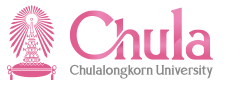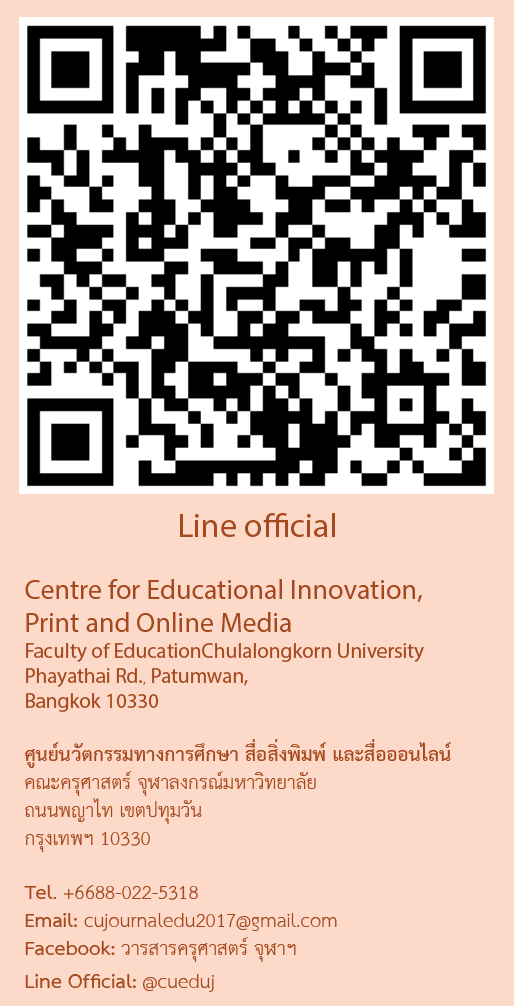Article Title
The Study of the Effectiveness of an Instructional Model based on Social Cognitive Theory and Strategic Life Planning to Enhance Self-Regulation and Health Education Learning Achievement of Lower Secondary School Students in Buriram Province(การศึกษาประสิทธิผลของรูปแบบการเรียนการสอนตามทฤษฎีการเรียนรู้ทางสังคมเชิงพุทธิปัญญาและแนวคิดการวางแผนยุทธศาสตร์ชีวิต เพื่อเสริมสร้างการกำกับตนเองและผลสัมฤทธิ์ทางการเรียนสุขศึกษาของนักเรียนชั้นมัธยมศึกษาตอนต้นในจังหวัดบุรีรัมย์)
Abstract
This research was aimed to: 1) develop an Instructional Model based on Social Cognitive Theory and Strategic Life Planning to enhance Self-Regulation and HealthEducation Learning Achievement of lower secondary school students; and 2) study the effectiveness of the instructional model which was developed. The study consisted of a Quasi-Experimental Design which was conducted by a Single-group interrupted Time-series Design. The samples comprised of 23 ninth-grade students in a Health Educational class. The experimental instruments were the lesson plans on Health Education with the sessions of the trail totaling 20 hours, with 1 hour per day for 1 semester. Self-Regulation Scales were as follows: SRS with an IOC of 0.90-1.00, Cronbach's Alpha Co-efficient = .95 and Health Education Achievement Test with an IOC of 0.80-1.00, KR-20 = .89, Difficulty values between 0.43-0.70 and a Discrimination index between 0.20-0.37 were utilized as instruments for data collecting. Percentage, mean, standard deviation and t-test were used as data analysis. The findings were as follows: 1. The developed Instructional Model consists of 5 main components: 1) Attention2) Forethought 3) Tactic Planning 4) Execution and 5) Reflection.2. The effectiveness of the developed Instructional Model was: 2.1 Mean scores of the Self-Regulation Scales post-test were 2.98 percentincreasing, and higher than the mean scores of the pre-test at .05 level of significance. 2.2 Mean scores of the Health Education Learning Achievement post-test were higher than mean scores of the pre-test at .05 level of significance.(การวิจัยแบบกึ่งทดลองนี้ มีวัตถุประสงค์เพื่อ 1) พัฒนารูปแบบการเรียนการสอนตามทฤษฎีการเรียนรู้ทางสังคมเชิงพุทธิปัญญาและแนวคิดการวางแผนยุทธศาสตร์ชีวิต เพื่อเสริมสร้างการกำกับตนเองและผลสัมฤทธิ์ทางการเรียนสุขศึกษาของนักเรียนชั้นมัธยมศึกษาตอนต้น 2) ศึกษาประสิทธิผลของรูปแบบการเรียนการสอน โดยศึกษากลุ่มเดียววัดหลายครั้งแบบอนุกรมเวลา ในนักเรียนชั้นมัธยมศึกษาปีที่ 3 จำนวน 23 คน เครื่องมือที่ใช้ ได้แก่ แผนการจัดการเรียนรู้รายวิชาสุขศึกษา จำนวน 20 สัปดาห์ ๆ ละ 1 ชั่วโมง เครื่องมือในการเก็บรวบรวมข้อมูล ได้แก่ 1) แบบวัดการกำกับตนเอง ที่มีค่า IOC ตั้งแต่ 0.90-1.00ค่าสัมประสิทธิ์แอลฟาของครอนบาค = .95 2) แบบทดสอบความรู้รายวิชาสุขศึกษา ที่มีค่า IOC ตั้งแต่ 0.80-1.00 ค่า KR-20 = .89 ค่าความยาก 0.43-0.70 ค่าอำนาจจำแนก 0.20-0.37 วิเคราะห์ข้อมูลด้วย ร้อยละ ค่าเฉลี่ย ส่วนเบี่ยงเบนมาตรฐาน และการทดสอบค่าที ผลการวิจัย พบว่า รูปแบบการเรียนการสอนมีองค์ประกอบหลัก 5 ขั้น คือ 1) สร้างความสนใจ 2) คาดการณ์ล่วงหน้า 3) วางแผนยุทธศาสตร์4) ปฏิบัติให้สำเร็จ และ 5) สะท้อนผลงาน และมีประสิทธิผล คือ 1) ค่าเฉลี่ยคะแนนความสามารถในการกำกับตนเองของกลุ่มตัวอย่างมีพัฒนาการสูงขึ้น ร้อยละ 2.98 โดยหลังการทดลองสูงกว่าก่อนการทดลองอย่างมีนัยสำคัญทางสถิติที่ระดับ .05 2) ผลสัมฤทธิ์ทางการเรียนรายวิชาสุขศึกษา หลังการทดลองสูงกว่าก่อนการทดลอง อย่างมีนัยสำคัญทางสถิติที่ระดับ .05)


